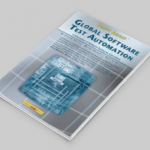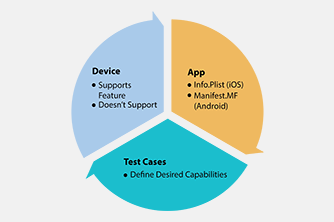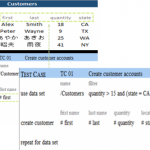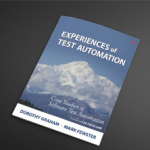The following is a transcript of a May 7, 2008 interview with Hung Q. Nguyen, founder and CEO of LogiGear Corporation and coauthor of the best selling textbook Testing Computer Software.
Interviewer: When it comes to software testing, what concerns or issues are you hearing from software developers?
Hung Q. Nguyen: The most pressing concern that I hear from companies that develop software is that they are not testing fast enough. With advancements in technology and development tools the rates for building software have become very fast. Development is outpacing software testing which is driving a huge demand for test automation. However, test automation, done incorrectly can be more of a hindrance.
Interviewer: Test automation done incorrectly? Can you elaborate on what they are doing incorrectly?
Hung Q. Nguyen: Most do not approach this, test case development and execution, as a high volume issue. It is really very simple; a high volume of developed code requires a high volume of tests. In addition, it requires a high volume of tests that are easy to maintain so that test maintenance does not become a huge issue hindering the testing effort.
Some of the largest causes of this problem are the lack of a methodology and/or the misapplication of methodology. For example, I see many who approach keyword testing as a means of easing the test development process so that test design and automation can be given to less technical people – they are in essence dumbing down test automation.
They need to approach test automation from two aspects. First they should look at it as a volume issue. Secondly, they need to look at designing and writing tests for maintainability. Given that mind set, test automation is not a means of getting less technical people to automate tests. It is a means of using very talented people to design, write, and execute very high volumes of tests. Only then can testing keep up with development.
Interviewer: Is there too much emphasis on test automation tools?
Hung Q. Nguyen: Absolutely. Many focus on tools and tool selection and the ability of the tool to successfully create automated test cases. Given that mind-set, a tool may be deemed to be successful because it is meeting the goal of creating automated test cases or automating existing test cases. But at the same time it may be a failure because the organization is not creating a high enough volume of test cases to keep pace with development.
Interviewer: What can organizations do to correct this problem?
Hung Q. Nguyen: They need to stop focusing on automating a certain percentage of existing test cases and approach the issue with the mind set of how to build a massive amount of test cases and how to automate these test cases from the early stage. Test automation is not a check list item. You need to understand the dynamics of high volume development and high volume testing. Organizations need to have a strategy, and methodology, and tools that support the goal of high volume tests and test automation.
Interviewer: How does offshoring impact this?
Hung Q. Nguyen: Obviously for any organization with a test automation effort that is not informed and directed by strategy and methodology, offshoring is only going to serve to exacerbate problems. It is kind of like going overseas without a map or a plan. For these organizations I recommend partnering with a software testing organization that can help them with strategy, methodology, and tool selection while at the same time addressing the low-cost resource issue.
But even good test automation efforts can have problems going offshore.
Interviewer: How so?
Hung Q. Nguyen: The biggest problem that I see time and again is that organizations give their offshore teams the wrong things to do. It is more of an issue of not leveraging the resource correctly.
Interviewer: In your view, what are the right things to keep onshore and the right things to send offshore?
Hung Q. Nguyen: I think that things that are best kept onshore are things such as management of the software testing and test automation efforts, and strategic quality management. These things need to be onshore and focus on results, output optimization, and quality of services.
Another classic example from a testing standpoint of something that should probably stay onshore is usability testing. This is testing that is inextricably intertwined with domain expertise, end-user knowledge, and cultural context.
Interviewer: What is best done offshore?
Hung Q. Nguyen: High volume tasks should go overseas. By this I mean test case creation, automation, and execution. Highly technical tasks also are appropriate for offshoring. There is no competitive advantage to do these things onshore. The key to successful offshoring, however, is the strong onshore management.
I look at how we at LogiGear approach our customer engagements. We have our strategic software testing resources in the United States. We also make use of U.S. based test leads that interface both with our testing strategists and the customer. They also manage the offshore testing efforts interfacing with offshore test leads who work with the test designers and automation engineers. It is a blend of on-and offshore that emphasizes management and strategy onshore and high-volume test case development, automation, and execution offshore.
Interviewer: You mention highly technical tasks going overseas. Isn’t that somewhat contrary to how initial software testing efforts overseas were handled?
Hung Q. Nguyen: That’s a good point. You are correct in that the first generation of offshore software testing around 2000 was largely low-skill work that was sent overseas to be done by low-skilled testers. Now these efforts, which are low-skill oriented, are being beset by rising costs and they don’t have the capabilities necessary to address testing in volume.
It is our experience, in Vietnam, that we have a very highly skilled workforce from a technology standpoint, often times more so than onshore. That is why it is very appropriate to send advanced test automation and other highly technical tasks overseas.
Interviewer: Let’s shift gears now. You have mentioned Vietnam several times. I know that LogiGear was a pioneer in Vietnam and am wondering how things are going for LogiGear in Vietnam.
Hung Q. Nguyen: Things continue to go very well for LogiGear in Vietnam We are continuing to expand at a rapid pace. Many major multi-national corporations have now followed us into Vietnam.
Interviewer: Is the presence of multinational corporations increasing competition for resources and if so, how are you dealing with that?
Hung Q. Nguyen: We have seen some increase in competition for resources but we are managing to deal with it quite effectively. We were one of the first in Vietnam and our roots are deep. We continue to do what we always have done. We provide a very high level of on-going training for our staff. We also offer more opportunity for career and income growth than exists in the larger companies.
Many are coming to realize that the other companies need resources but they do not offer a lot of opportunity for advancement. In essence, people going there are small fish in a very big pond. The largest portion of LogiGear’s total workforce including the U.S. is in Vietnam. Because of this the opportunity for growth and advancement is extensive.
I do have to add a disappointment about the behavior of some of these other multi-national companies, however. They are displaying hiring practices and behavior in Vietnam that would be totally unacceptable in the United States. They are inundating our employees, and the employees of other companies with constant e-mail job solicitations. This behavior in the United States and other parts of the world would by all definitions, legislative and commonly defined good behavior, be labeled as nothing short of spam. They should abide by the same acceptable standards of conduct in Vietnam as they do in the United States. Other than that, we are dealing with the resource competition quite effectively. In fact, I embrace competition because it’s good for Vietnam’s software testing industry specifically and it good for career opportunities for the Vietnamese workforce as a whole.
Interviewer: How is the Government of Vietnam helping or hindering efforts?
Hung Q. Nguyen: The government has been and continues to be very supportive through policy and tax incentives. In general the regulatory environment is very favorable. They also continue to support higher education which helps us to continue to attract highly qualified workers as we continue our rapid expansion.
Interviewer: Thank you for your time.
Hung Q. Nguyen: It was my pleasure.




















